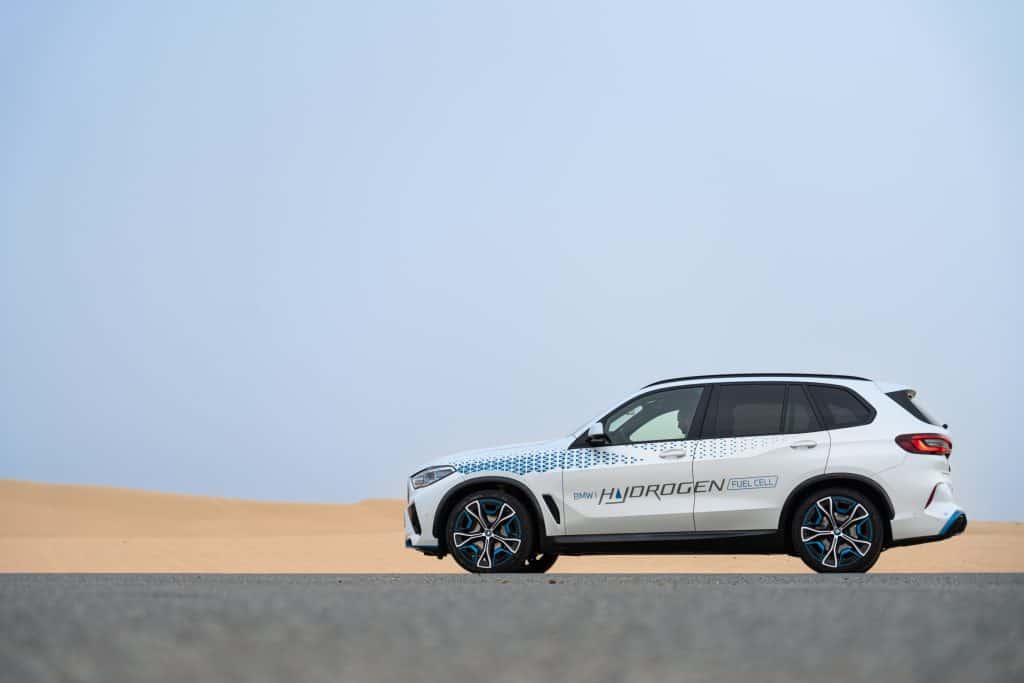
The highly efficient fuel cell system, the two hydrogen tanks, the electric motor and the power battery teamed up with the central vehicle control unit to demonstrate their outstanding performance and state of readiness. The Munich-based development team examined both the functionality of all the electric systems under the extreme conditions and the provision of the cooling power to enable the full performance of the vehicle. The vehicles were able to ensure the driving dynamics for which BMW is renowned.
The BMW iX5 Hydrogen goes around the world
Vehicles from the pilot fleet are currently in action in Europe, Japan, Korea, China, the USA and the Middle East. The aim is to shine a spotlight on the everyday usability of hydrogen-powered vehicles, and beyond that to gain important knowledge for the development of a potential series-produced model. The BMW Group is using the pilot fleet to provide support on a regional level for the development of a refuelling infrastructure which can be used with 700-bar refuelling technology across all categories of vehicle – from passenger cars and small vans to buses and heavy-duty commercial vehicles. Synergies between different areas of application also offer important scope for developing a strong network of suppliers in hydrogen technology and reducing costs.
The BMW iX5 Hydrogen combines long-distance capability and short refuelling stops with locally emission-free driving. Provided the relevant framework is in place, the hydrogen fuel cell technology has the potential to serve as another pillar in the BMW Group’s future drive system portfolio.
As part of its ongoing transformation, the BMW Group is applying a “technology-open” approach when it comes to drive systems. The company is therefore adapting to different customer requirements, infrastructure standards and political and regulatory landscapes in the various regions of the world. This flexibility puts the BMW Group in the position to respond quickly to changing requirements in the markets in any situation and to present an attractive offer for as many customers as possible at all times.
The BMW iX5 Hydrogen has a fuel cell system generating output of 125 kW/170 hp and a highly integrated drive unit using fifth-generation BMW eDrive technology (the electric motor, transmission and power electronics are grouped together in a compact housing). The output of the overall drive system is 295 kW / 401 hp. The hydrogen needed to power the fuel cell is stored in a pair of 700-bar tanks made from carbon-fibre-reinforced plastic (CFRP). Together, these tanks can hold around six kilograms of hydrogen. This storage capacity gives the BMW iX5 Hydrogen a range of 504 km (313 miles) in the WLTP cycle.